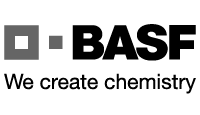A Project Manager’s Best Investment
A typical Project Manager may have multiple ongoing projects or may be heavily engaged in complying with internal/stakeholders’ demands and, therefore, does not have the luxury of desired time to dedicate to keep up with the details of associated projects. Investing in an external consultant would be the “silver bullet” or “ace in the hole” for that PM. This consultant would ideally be the liaison between the PM and contractors and would result in a more effective project.
There are some companies out there that provide this sort of service, but mostly those schemes defeat the purpose. Let’s elaborate on the common and ideal schemes next:
In a typical scheme where company A hires multiple contractors to work on a project and each is to report to head PM, company X would lease out a PM with mainly nontechnical skills to undertake administrative work from the head PM. This does not help manage the technical aspects of the project and it is all going to head PM to handle. Due to lack of time at head PM’s hands, project aspects start to delay and/or not the best decisions are made due to loss of information during translation up to head PM.
In another typical scheme where company A hires a multidiscipline engineering company Y that designs all engineering aspects, company Y manages subcontractors in addition to its own engineering scope. This is better than previous scenario because manager and engineers work for same company Y and can hash out most of the details without head PM’s verdict. Design changes of substantial magnitude are still brought to head PM’s attention in addition to bulk-document reviews throughout the process. Due to lack of time, however, head PM does not get to review the documents in details and design ends up off course to a certain degree.
In the ideal scheme, however, regardless of whether company A hires multiple contractors or hires a single multidiscipline engineering firm, company Z would provide a technical PM/consultant. This individual would handle administrative tasks and review the technical documentation in great details on behalf of the head PM, provide sufficient summary for approvals and make sound recommendations as needed.
To recap:
1st scenario – Company A’s head PM ends up making most of technical decisions because company X’s provided PM lacks technical expertise. This typically results in a delayed and/or off-course project.
2nd scenario – Company Y’s PM is internal to engineering company so “minor” deviations are not brought to company A’s head PM’s attention; only “significant” changes are. And when the vast amount of documents are sent out for head PM’s approval, they are not really reviewed in detail and entirety due to time constraints. This typically results in an off-course project.
3rd scenario – Most of the managerial and technical tasks are undertaken and handled efficiently by company Z’s provided consultant while keeping company A’s head PM in the loop. This typically results in an on-course and on-schedule project. Also, head PM gets to step back and look at the overview of the project while focusing on other important tasks.
We all know when a project goes off course during design phase, time and cost to rectify deviations are amplified in construction phase. And some deviations are irreversible and operations ends up dealing with them.
In addition to providing exceptional Industrial Automation and Controls services, we also provide excellent engineering consultation services like company Z in this article. For best results on your projects, contact the experts at Industrial CSE online, by phone at 1-866-ASK-ICSE, or via email at Contact@industrialcse.com.















